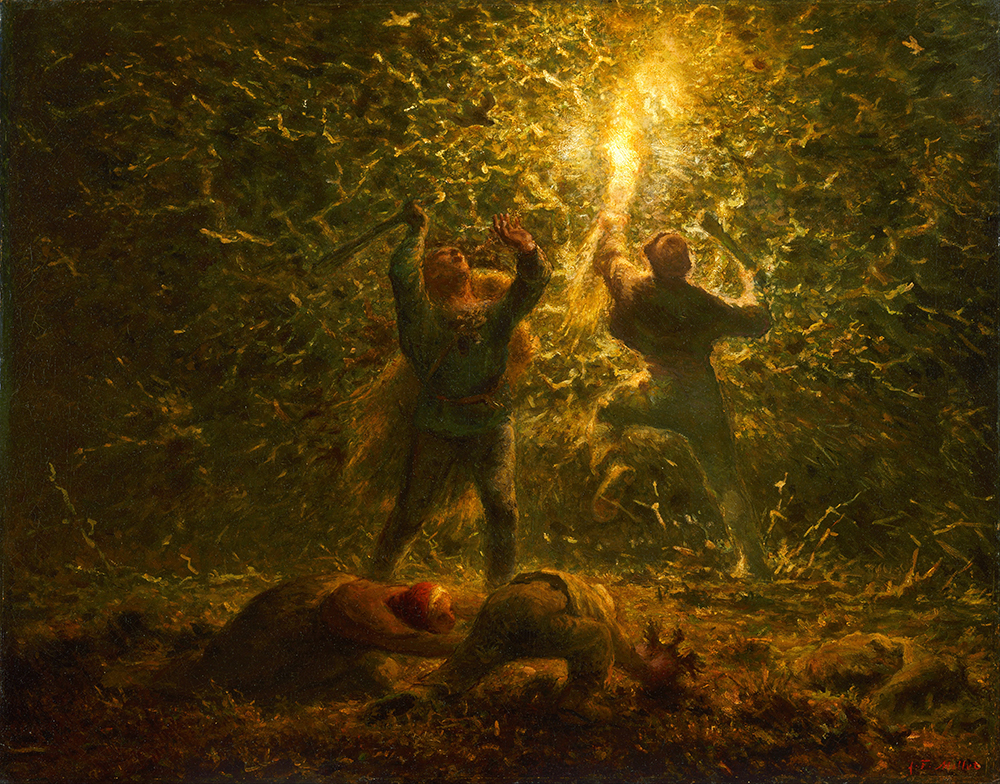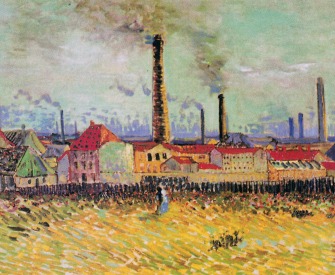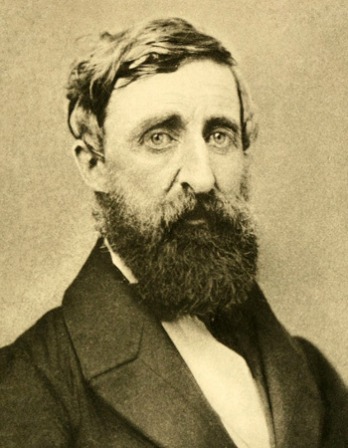When night in her rusty dungeon has imprisoned our eyesight, and that we are shut separately in our chambers from resort, the devil keeps his audit in our sin-guilty consciences.
—Thomas Nashe, 1594Pit Stop
Henry Mayhew on nightmen’s work.
Night work, by the provisions of the Police Act, is not to be commenced before twelve at night nor continued beyond five in the morning, winter and summer alike.
This regulation is known among the nightmen as the “legal hours,” and tends, in a measure, to account for the heterogeneous class of laborers who still seek night work; for strong men think little of devoting a part of the night, as well as the working hours of the day, to toil. A rubbish carter, a very powerfully built man, told me he was partial to night work, and always looked out for it, even when in daily employ, as “it was sometimes like found money.” The scavengers, sweeps, dustmen, and laborers known as ground workers are anxious to obtain night work when out of regular employment; and ten years and more since, it was often an available and remunerative resource. Night work is, then, essentially and perhaps necessarily, extra work, rather than a distinct calling followed by a separate class of workers. Perhaps there is not at the present time in the whole metropolis a working nightman who is solely a working nightman.
The police of Paris have full control over cesspool cleansing, but the police of London are instructed merely to prevent night work being carried on at a later or earlier period than “the legal hours.”
Night work is carried on—and has been so carried on, within the memory of the oldest men in the trade, who had never heard their predecessors speak of any other system—after this method: a gang of four men (exclusive of those who have the care of the horses, and who drive the night carts to and from the scenes of the men’s labors at the cesspools) are set to work. The labor of the gang is divided, though not with any individual or especial strictness, as follows: the holeman, who goes into the cesspool and fills the tub; the ropeman, who raises the tub when filled; the tubmen (of whom there are two), who carry away the tub when raised and empty it into the cart.
The mode of work may be thus briefly described. Within a foot, or even less sometimes, though often as much as three feet, below the surface of the ground (when the cesspool is away from the house) is what is called the “main hole.” This is the opening of the cesspool, and is covered with flagstones, removable, wholly or partially, by means of the pickax. If the cesspool be immediately under the privy, the flooring, etc., is displaced. Should the soil be near enough to the surface, the tub is dipped into it, drawn out, the filth scraped from its exterior with a shovel or swept off with a besom or washed off by water flung against it with sufficient force. This done, the tubmen insert the pole through the handles of the tub and bear it on their shoulders to the cart. The mode of carriage and the form of the tub have been already shown in an illustration, which I was assured by a nightman who had seen it in a shopwindow (for he could not read) was “as nat’ral as life, tub and all.”

Bird’s-Nesters, by Jean-François Millet, 1874. Wikimedia Commons, Philadelphia Museum of Art.
Thus far the ropeman and the holeman generally aid in filling the tub, but as the soil becomes lower, the vessel is let down and drawn up full by the ropeman. When the soil becomes lower still, a ladder is usually planted inside the cesspool; the holeman, who is generally the strongest person in the gang, descends, shovels the tub full, having stirred up the refuse to loosen it, and the contents, being drawn up by the ropeman, are carried away as before described. The labor is sometimes severe. The tub when filled, though it is never quite filled, weighs rarely less than eight stone, and sometimes more.
Beer and bread and cheese are given to the nightmen, and frequently gin, while at their work; but as the bestowal of the spirit is voluntary, some householders from motives of economy, or from being real or pretended members or admirers of the total-abstinence principles, refuse to give any strong liquor, and in that case—if such a determination to withhold the drink be known beforehand—the employers sometimes supply the men with a glass or two; and the men, when “nothing better can be done,” club their own money and send to some night house, often at a distance, to purchase a small quantity on their own account. One master nightman said he thought his men worked best, indeed he was sure of it, “with a drop to keep them up”; another thought it did them neither good nor harm, “in a moderate way of taking it.” Both these informants were themselves temperate men, one rarely tasting spirits. It is commonly enough said that if the nightmen have no “allowance,” they will work neither as quickly nor as carefully as if accorded the customary gin “perquisite.” One man, certainly a very strong, active person, whose services where quickness in the work was indispensable might be valuable (and he had work as a rubbish carter also), told me that he for one would not work for any man at night work if there was not a fair allowance of drink “to keep up his strength,” and he knew others of the same mind. On my asking him what he considered a “fair” allowance, he told me that at least a bottle of gin among the gang of four was “looked for, and mostly had, over a gentleman’s cesspool. And little enough, too,” the man said, “among four of us; what it holds if it’s public-house gin is uncertain: for you must know, sir, that some bottles has great ‘kicks’ at their bottoms. But I should say that there’s been a bottle of gin drunk at the clearing of every two, aye, and more than every two, out of three cesspools emptied in London; and now that I come to think on it, I should say that’s been the case with three out of every four.”
Some master nightmen, and more especially the sweeper nightmen, work at the cesspools themselves, although many of them are men “well-to-do in the world.” One master I met with, who had the reputation of being “warm,” spoke of his own manual labor in shoveling filth in the same self-complacent tone that we may imagine might be used by a grocer worth his “plum” who quietly intimates that he will serve a washerwoman with her half ounce of tea and weigh it for her himself, as politely as he would serve a duchess; for he wasn’t above his business; neither was the nightman.
On one occasion I went to see a gang of nightmen at work. Large horn lanterns (for the night was dark, though at intervals the stars shone brilliantly) were placed at the edges of the cesspool. Two poles also were temporarily fixed in the ground, to which lanterns were hung, but this is not always the case. The work went rapidly on, with little noise and no confusion.
The scene was peculiar enough. The artificial light, shining into the dark, filthy-looking cavern or cesspool, threw the adjacent houses into a deep shade. All around was perfectly still, and there was not an incident to interrupt the labor except that at one time the window of a neighboring house was thrown up, a night-capped head was protruded, and then down was banged the sash with an impatient curse. It appeared as if a gentleman’s slumbers had been disturbed, though the nightmen laughed and declared it was a lady’s voice! The smell, although the air was frosty, was for some little time, perhaps ten minutes, literally sickening; after that period the chief sensation experienced was a slight headache; the unpleasantness of the odor still continuing, though without any sickening effect. The nightmen, however, pronounced the stench “nothing at all”; and one even declared it was refreshing!

Henry Mayhew
From London Labor and the London Poor. One of seventeen children born to a middle-class British family, Mayhew drifted into a life of playwriting and journalism after a failed attempt at a law career. He cofounded the magazine Punch in 1841, serving a role the publishers described as “suggester in chief,” but left in frustration in 1845. Soon after he began to write articles about working-class Londoners—whom he categorized as “they will work, they can’t work, and they won’t work”—that were collected in four volumes, from 1851 to 1861.




